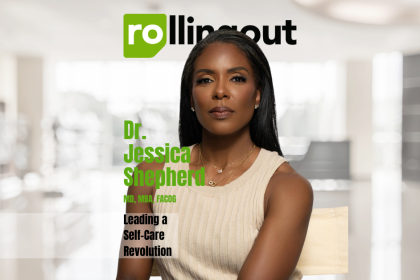While strokes traditionally affect older populations, a concerning pattern emerges among younger adults. Undetected high blood pressure often hides behind a facade of health and fitness, creating risk even in seemingly healthy individuals. This silent condition can develop and progress for years without detection, particularly in those who consider themselves too young or too healthy to be at risk.
Early onset risks
Young adults often overlook blood pressure monitoring, assuming their age provides protection. This oversight allows cardiovascular issues to develop unnoticed, particularly in individuals who maintain active lifestyles and appear outwardly healthy.
The misconception of invulnerability often prevents young adults from seeking regular medical care. Many prioritize career advancement and social life over routine health screenings, creating gaps in preventive care that allow high blood pressure to remain undetected.
Regular exercise and healthy eating habits, while beneficial, don’t guarantee protection against high blood pressure. Genetic factors, stress levels, and other environmental influences can override otherwise healthy lifestyles, making regular monitoring essential regardless of fitness level.
Hidden pressure patterns
High blood pressure develops silently, often showing no early warning signs. Modern lifestyle factors significantly contribute to its development in young adults, even those who maintain regular exercise routines.
Prolonged stress exposure affects cardiovascular health, even in physically fit individuals. The demands of establishing careers, managing finances, and balancing personal lives create chronic stress that impacts blood pressure regulation. Poor sleep patterns and irregular schedules, common among young professionals, further compound these effects.
Dietary choices play a crucial role, regardless of physical fitness level. High sodium intake, common in convenient foods favored by busy young adults, influences pressure levels. Even health-conscious individuals may unknowingly consume excess sodium through restaurant meals and processed foods marketed as healthy options.
Cardiovascular impact
Uncontrolled blood pressure affects the cardiovascular system through multiple mechanisms. Blood vessel walls gradually weaken under constant pressure, losing elasticity and becoming less responsive to normal regulatory signals.
The continuous strain on arterial walls leads to microscopic damage that accumulates over time. This damage occurs throughout the body but poses particular risks in the brain, where small vessels become increasingly vulnerable to rupture or blockage.
Young adults may not notice these changes as they develop gradually. The body’s natural resilience can mask early damage, allowing the condition to progress until more serious complications arise.
Warning signs
Young adults frequently dismiss important warning signals that could indicate developing blood pressure issues. These subtle signs often get attributed to stress, lack of sleep, or normal life pressures.
Persistent morning headaches may indicate overnight blood pressure changes. These headaches typically occur upon waking and may improve as the day progresses, leading many to dismiss them as routine. Occasional vision changes, particularly brief periods of blurriness or difficulty focusing, can signal cardiovascular stress.
Unexplained fatigue, especially when it persists despite adequate rest, might reflect circulation issues. Regular dizziness, particularly during position changes, warrants medical attention. Even mild chest discomfort requires evaluation, though many young adults attribute it to stress or muscle strain.
Prevention strategies
Effective stroke prevention requires a comprehensive approach combining regular monitoring with lifestyle modifications. Blood pressure checks should occur at least annually, even for young, healthy individuals. Those with family histories of cardiovascular disease or other risk factors may need more frequent monitoring.
Lifestyle modifications play a crucial role in prevention:
- Balanced nutrition focusing on whole foods and limited sodium
- Regular physical activity combining cardio and strength training
- Stress management through various techniques
- Adequate sleep patterns with consistent schedules
- Moderate alcohol consumption if any
- Complete smoking cessation and avoidance
Professional guidance
Health care providers emphasize the importance of establishing a baseline for blood pressure readings early in adulthood. This baseline allows for easier detection of concerning trends and enables early intervention when needed.
Regular medical check-ups provide opportunities to discuss family history, lifestyle factors, and individual risk levels. These conversations help create personalized prevention strategies that account for each person’s unique circumstances and challenges.
Moving forward
Understanding stroke risks in young adults requires ongoing education and awareness. The combination of regular health monitoring and lifestyle modifications provides the best protection against early stroke occurrence.
Young adults must recognize that their age alone doesn’t protect against cardiovascular problems. Taking proactive steps to monitor and manage blood pressure can prevent life-altering complications later in life.
Health care providers continue emphasizing early detection and prevention, particularly among younger populations who may overlook these crucial health aspects. By understanding and addressing these risks early, young adults can protect their long-term health and well-being.
Success in preventing strokes among young adults depends on changing perceptions about cardiovascular health. Recognizing that high blood pressure can affect anyone, regardless of age or fitness level, represents the first step in addressing this growing health concern.
This story was created using AI technology.















